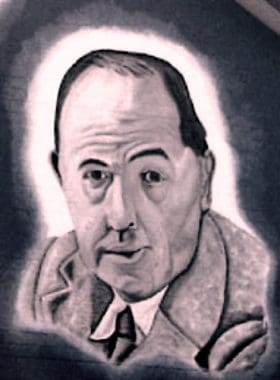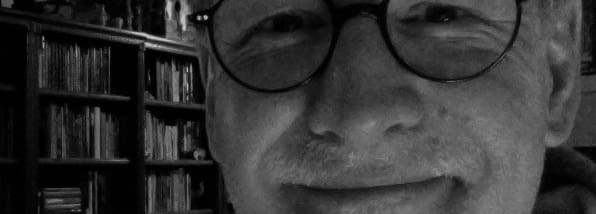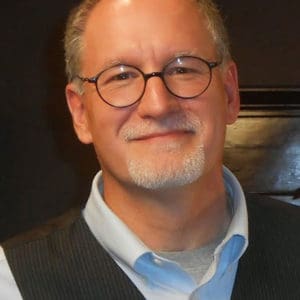Life, As I Find It
There is a pitiable verse in Psalm 31 about being like the “dead unremembered” – a broken pot, discarded and forgotten. It is a visceral lament. Few, if any of us, would want to die believing we had contributed so little to the lives of those who knew us that we could simply vanish from memory or the continuity of the human record.
 A lot of people died on Nov. 22nd, 1963. Mothers, fathers, husbands, wives, sons and daughters who were mourned by someone and, perhaps to this day, are still missed. Some we never knew and will never know. Among those who died on that day were three men of international note. There was President John F. Kennedy, assassinated in Dallas; writer and intellectual Aldous Huxley; and writer and Christian apologist C.S. Lewis. I’ve been musing on these three men as we consider how they are remembered 50 years after they died.
A lot of people died on Nov. 22nd, 1963. Mothers, fathers, husbands, wives, sons and daughters who were mourned by someone and, perhaps to this day, are still missed. Some we never knew and will never know. Among those who died on that day were three men of international note. There was President John F. Kennedy, assassinated in Dallas; writer and intellectual Aldous Huxley; and writer and Christian apologist C.S. Lewis. I’ve been musing on these three men as we consider how they are remembered 50 years after they died.
The assassination of President John F. Kennedy is part of our collective consciousness – something we all seem to know. Names like Lee Harvey Oswald and Dealey Plaza tag along with relative ease. However, fewer people know exactly what John F. Kennedy did in his time as the President. Ask around. You’ll probably find those who think of him as an icon of youth and charisma, tragically murdered in his prime. Some may remember the Bay of Pigs trouble or the Cuban Missile Crisis, though the details will be fuzzy. Some will recall his award-winning book Profiles in Courage, still read by many elementary school students (though it has since been revealed that the book was ghostwritten by speechwriter Ted Sorensen). Some will recall that he was the nation’s first Catholic President, though he assured nervous Protestants that Church teaching would have nothing to do with his politics – or, as it turns out, his life. He might also be remembered as a self-indulgent philanderer.
Whoever and whatever John F. Kennedy was, his legacy is now overshadowed by the events of Nov. 22nd. Did assassin Lee Harvey Oswald act alone? Did someone else shoot from the grassy knoll? Was there a vast conspiracy with the military or the CIA or the Mob to end Kennedy’s life? Books, documentaries and TV specials pore over the details and myths again and again. To put it bluntly, the death of President Kennedy now prevails over any accomplishment in his life.
I have to wonder how many people remember that Dallas Police officer J.D. Tippit died that day, also gunned down by Lee Harvey Oswald shortly after Kennedy was shot. Presumably the remaining Tippit family remembers it well.
Ask anyone about Aldous Huxley and I’ll wager the responses will be vague. Students who’ve been forced to read Brave New World might know Huxley as its author, though he wrote a lot of other books. A handful will know he was an intellectual and satirist. If people remember that he was British, they might assume he died in England when, in fact, he moved to Southern California in 1937 and died there of cancer. Movie buffs could mention that he scripted a few films for MGM in Hollywood. He dabbled in the occult and hallucinogenic drugs. So, who remembers Aldous Huxley? Mostly a specialized group of academics, philosophers and English literature teachers.
In England, the death of C.S. Lewis passed with little notice. Even if Kennedy had not been shot that day, Lewis’ obituary would not have been front page news. Some might have remembered that he was a popular radio broadcaster during the war or the author of a few books about Christianity or the creator of some children’s books.
Before his death, C.S. Lewis had a conversation with a lawyer regarding his literary estate. Lewis was dismissive. He was certain that few people, if anyone, would know his work within, say, five years of his death. He may have been right had his writings been left to the British to carry on. But the people of other nations, Americans in particular, did not forget him. On the contrary, and unlike the legacies of John F. Kennedy and Aldous Huxley, the work of C.S. Lewis has grown and expanded since his death 50 years ago. For those who did not share his beliefs, there remains a love and respect for The Chronicles of Narnia or his Science Fiction trilogy or the satirical The Screwtape Letters. For Christians or those exploring Christianity, his book Mere Christianity has become the go-to articulation of the faith. The Problem of Pain and A Grief Observed remain touch-points for those who yearn to understand suffering. And, within the Lewis canon, there are countless other books, articles and essays still being discovered by a new generation of readers.
What are we to make of these three men? Philosophy professor and author Peter Kreeft created a fictional trialogue between the three of them called Between Heaven and Hell – exploring Kennedy’s secular humanism, Huxley’s Eastern Pantheism and Lewis’ Christianity. It’s a fascinating read, if you ever get the chance. What strikes me the most about these three men is a simple reality: what we do with our lives is important, not only for those around us, but for those beyond our temporal spheres of influence. All lives ripple outwards, some impacting the water within only a few feet while others create waves that impact a distant shore.
This is the multi-level reality that we, as Christians, live within. Not only are we called to action in our immediate times and places, but we are called to action that will go beyond us and impact eternal destinies. In that reality, there can be no “dead unremembered.”
+
Art for this post on the dead unremembered: Detail from Mural depicting C.S. Lewis and images associated with his work, Ballymacarrett Road, east Belfast, Northern Ireland, photographed by Keresaspa, 12 April 2011 own work, CCA 3.0 Unported, Wikimedia Commons.




